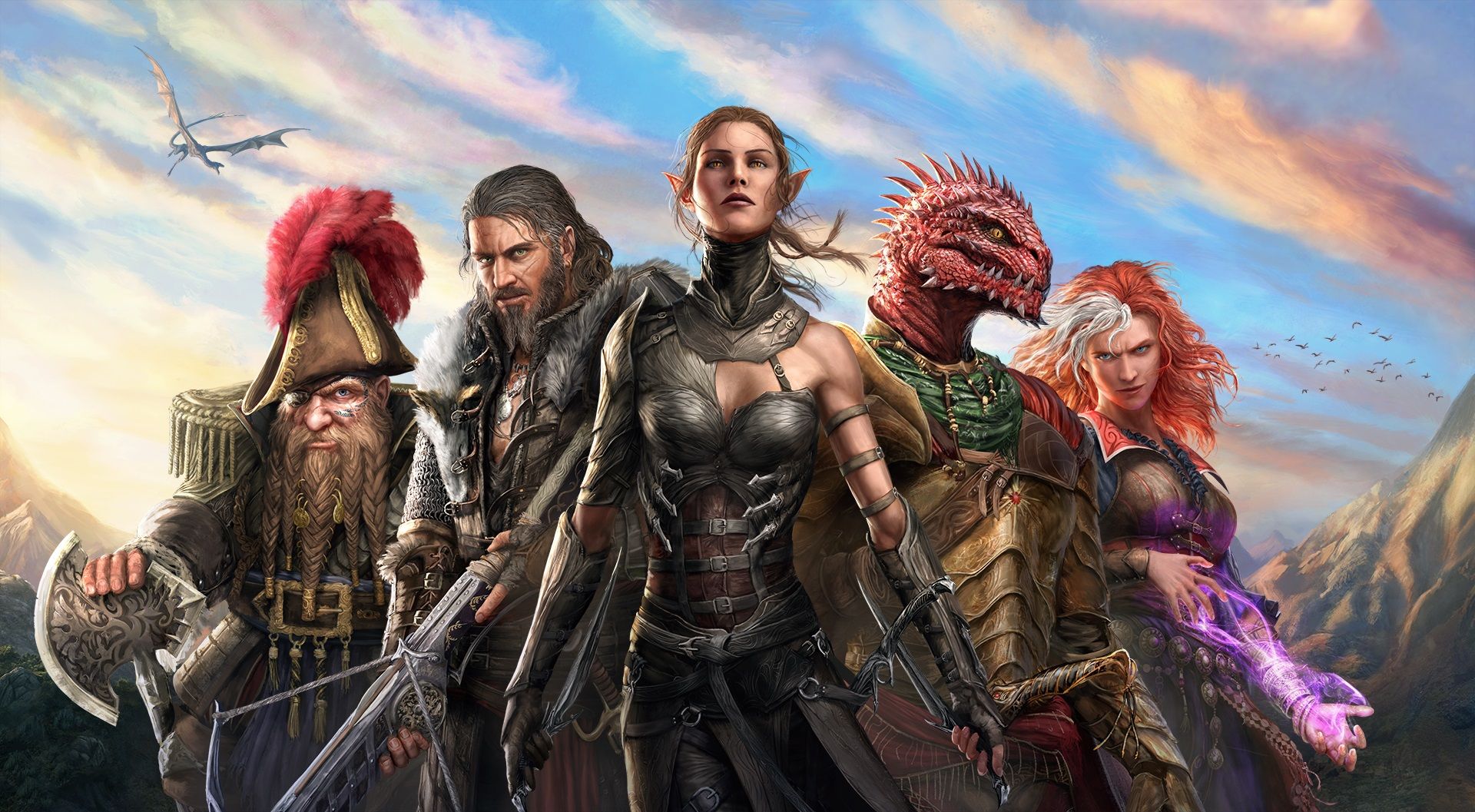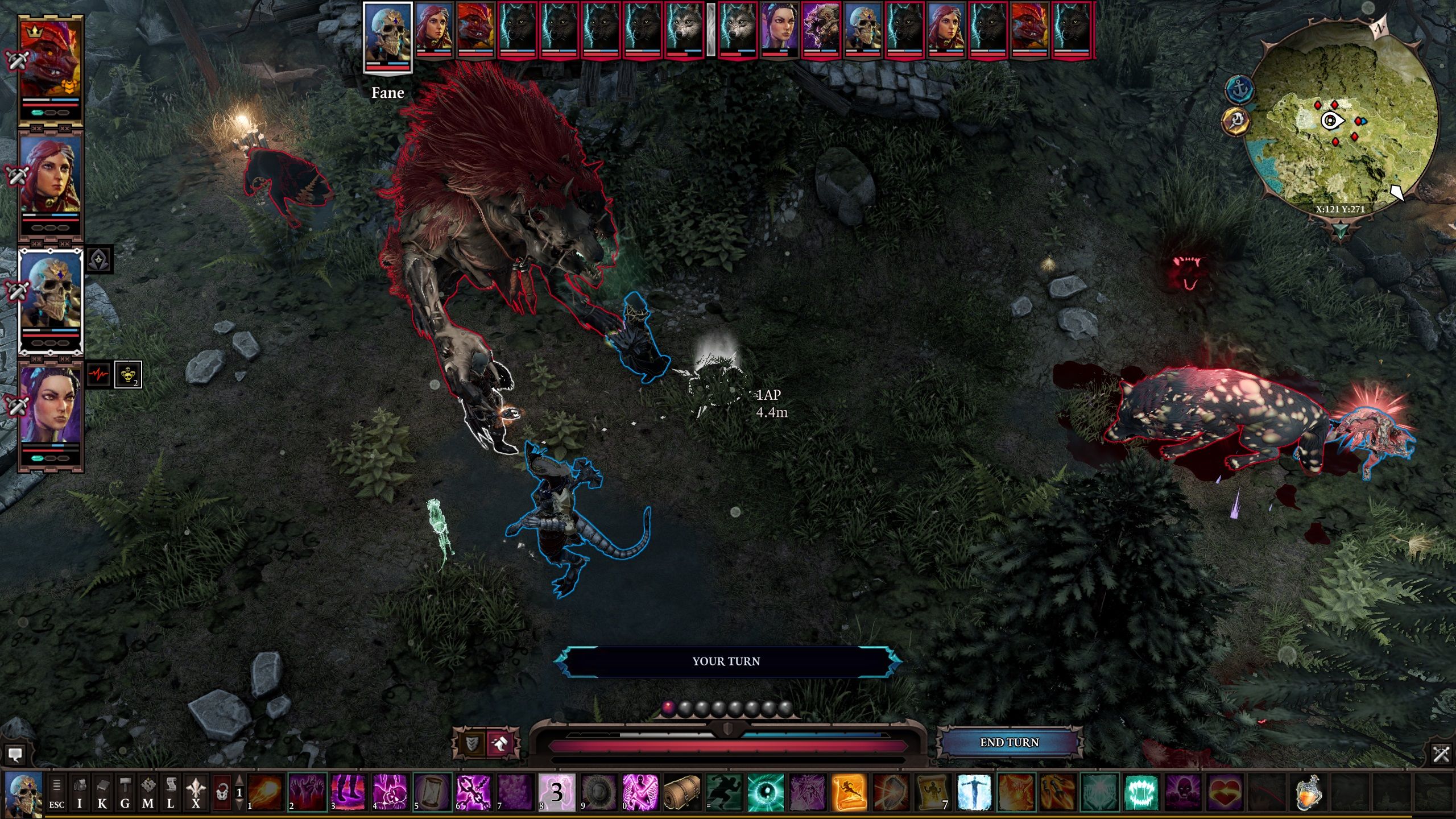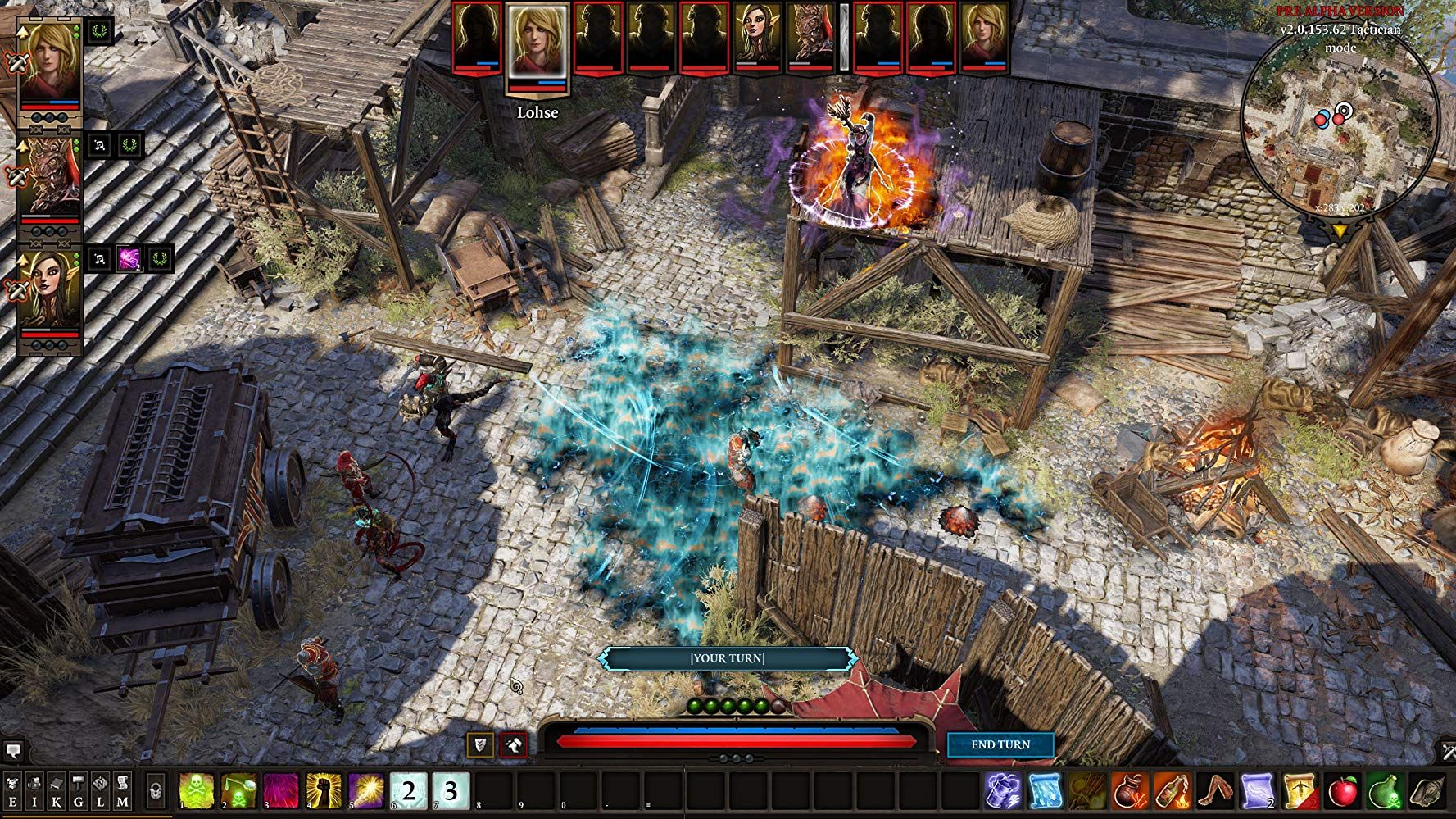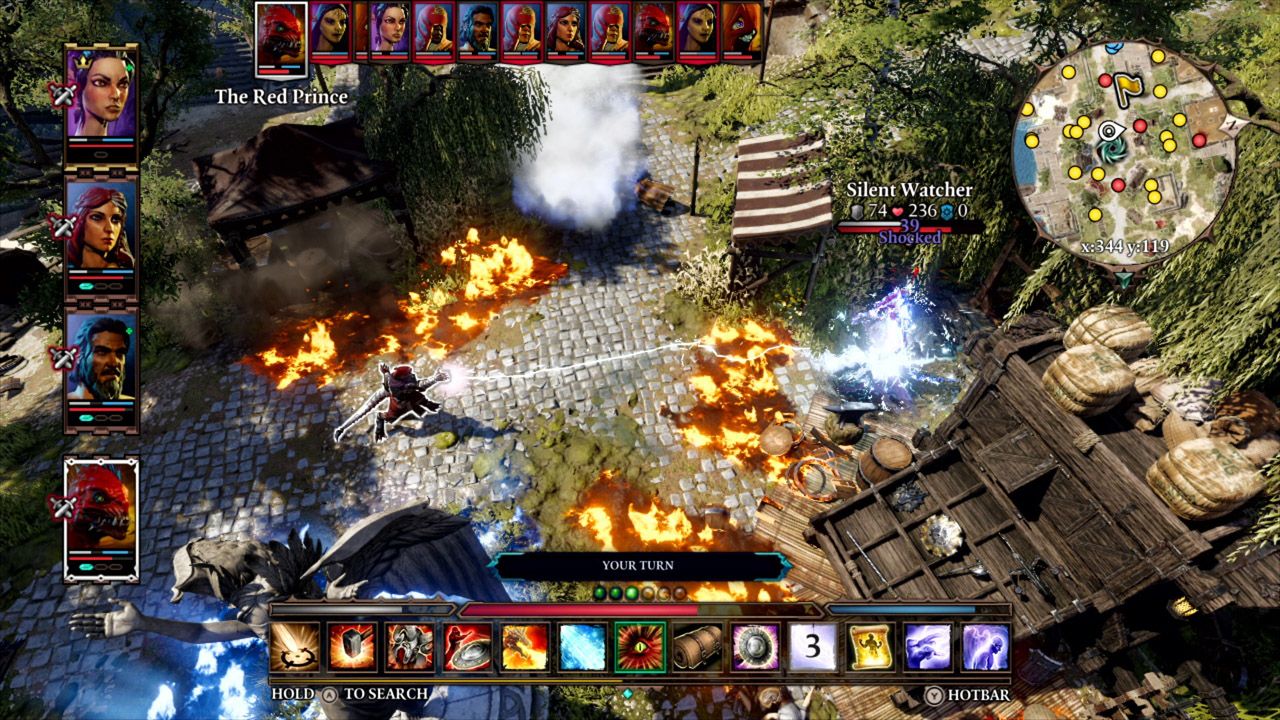Divinity: Original Sin 2 provides a quintessential “computer role-playing game” experience. It has detailed world-building and characters, loads of cool spells and abilities, and so many quest-lines you’ll start hearing Q-Tip. However, what makes DOS 2 really special is not how it follows the rules of the genre, but how it innovates. If you’re looking for a deep RPG with satisfying and challenging turn-based battles, look no further. If you’re on the go—no problem. DOS 2 is now on the Switch, and it’s more accessible than ever.
The crowning achievement of DOS 2 is to make every enemy encounter feel meaningful and unique. Very few RPGs—in fact, very few games can make such a claim. I'm genuinely amazed at how DOS 2 never stops exploring new mechanics and new ideas, many of which will force you to continually adjust your strategy. This is not a game where you just use your most powerful ability again and again and win.
[pullquote]"Divinity: Original Sin 2 is now on the Switch, and it’s more accessible than ever."[/pullquote]
For example, say you cast a fireball—fantasy magic 101. It looks awesome, and you’re really happy about its damage output. Unfortunately, it turns out that the poison cloud your undead wizard was using to heal is flammable. He is engulfed in flames and taking extra damage every turn, so you rush to put it out. At the next opportunity, you cast rain and douse the fire. Problem solved? Sort of. The fire is out, but now everything is wet, and your enemies are using electric attacks—a dangerous combination.
It's not rocket science, but mechanics like this will make you think about where and when you cast magic. Moreover, as I said, DOS 2 never stops mixing things up--a flammable poison cloud isn't the only trick it has up its sleeve.
Not everyone likes tricks, of course, and I'm sure there are some that will be annoyed that DOS 2 doesn't offer a full-blown tutorial of its every mechanic. First of all, that would be impossible: there's too much. Secondly, while a well-timed hint might, at times, help facilitate quicker progress, I don’t think the game is cryptic. The information you need is out there, and it’s up to you to find it—and to pay attention when it’s provided. This may mean listening to NPCs more closely or taking another look at the journals you pick up, and it may mean learning the old-fashioned way--through failure. Some essential mechanics may seem grating at first— “Why can’t my pyromancer just cast a dang fireball!?”—but the more you play, the more you’ll appreciate the way DOS 2 continually offers new and refreshing challenges.
To the uninitiated, Divinity: Original Sin 2's handling of quests will also seem a bit opaque. While your journal keeps an itemized list of stuff-to-do, it only tells you what you’ve learned so far—nothing more and nothing less. There are no cartoonish breadcrumb trails for you to follow, nor is there a silly “detective-mode.” Instead, understanding how to reach the next stage of a quest means listening to what NPCs have told you and following their very simple instructions. What could go wrong?
When playing DOS 2, you'll often be tempted to wander around without much of a plan. You'll just want to see what's out there, hoping to bump into some kind of meaningful interaction. You'll certainly find it. This will often be both good and bad. It's good because, hey, you found a thing--an indignant treasure chest, a giant werewolf, weird talking heads on spikes--whatever it might be. It's a cool and interesting thing and it tickles your fantasy bone. This sort of discovery can also be bad, though, because as likely as not, you’ll be very unprepared for it. You’ll lose the battle, you won’t have a key item, you won’t have the right conversation skills—and you’ll fail the quest. That's right: you'll fail the quest.
Divinity: Original Sin 2 is alarmingly comfortable with failure. Sure, you can always reload a save, but you’ll probably not want to do that every time. Besides, learning to accept a loss here and there is part of the journey. It’ll leave your quest log frustratingly incomplete, but it will help develop your character’s identity. More importantly, it’ll make your triumphs feel all the more satisfying.
And there will be triumphs. As you play more, you'll start picking your battles better and paying closer attention to those instructions you've been given. DOS 2 will reward these efforts. Not just with loot (though yes, of course, with tons of loot), but with satisfying conclusions to its quests--with storytelling, world-building, and personality. Very few games have captured my imagination in the same way DOS 2 has. Every character--every NPC, even--is detailed, offbeat, and utterly charming. And the narrator--at this point, I hear DOS 2's playfully aloof narrator in my head even when I'm not playing. It's that infectious. While many modern games wallow in their “maturity,” DOS 2 is always delightfully light-hearted--even as it wrestles with sophisticated and sometimes dark concepts.
So that’s most of the good news. The bad news is that the recent Switch port isn’t perfect. For example, the Switch, like the Xbox One and PS4, asks you to play DOS 2 with a gamepad. This is not ideal. Navigating menus--a huge part of the game--is a painful experience with a controller. There are tons of items, spells, and equipment, and cycling through them one by one is tedious. Even worse, though, is trying to sift through the multitude of items, people, and obstacles in the field. A mouse allows you to maneuver your camera and select what you want with precision, but this process is much more difficult with a controller. It is clumsy at best, and sometimes you'll accidentally put your characters in harm's way.
The second issue with the Switch port of DOS 2 is the game’s performance. The graphics are worse than they are on other platforms: textures are muddy, pop-ins are regular, and character models are poorly defined. If you’re playing undocked, the lower resolution exacerbates these issues. DOS 2 can look really nice, so the graphical downgrade is definitely disappointing. Couple this with frame rate issues during battles, and you’ve got an underwhelming experience from a technical standpoint.
[pullquote]"The Switch port, while flawed, offers an adequate way of experiencing [Divinity: Original Sin 2.]"[/pullquote]
So, yeah—there are some issues with Divinity: Original Sin 2 on the Switch. That being said, none of them are too bad. This isn’t a game that depends on graphics to sustain your interest, and if there is a style of gameplay that can account for framerate problems, it’d be turn-based battles. As for the controller—well, it’ll never be your best option. However, I do think it works pretty well for battles. There’s no flick-aiming required in DOS 2, and a controller offers a pretty comfy and steady way of cycling through your hotbar’s options.
Furthermore, the Switch’s features nearly make up for all of these problems. I always thought it'd be nice to be able to play a game as deep as DOS 2 during a trip or a long commute. Now you can—it’ll just look a little blurry around the edges. The best part about DOS 2's newfound portability, though? Cross-saves between Switch and Steam versions of the game work flawlessly. In a perfect world, you'll play portable on Switch when you have to, and load on Steam when you can.
Even if you don’t have a PC, DOS 2 is still worth the look. It’s too funny, too unique, and too unpredictable to miss, and the Switch port, while flawed, offers an adequate way of experiencing it.




